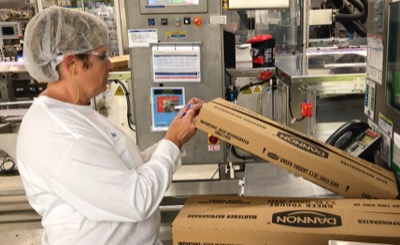Wednesday, October 24th, 2018
Leftover building space, land evaluated
About 15,000 square feet available at Cheryl Ann facility
By Cheryl McKirnan
CELINA - Cheryl Ann Board of Developmental Disabilities' relocation of its workshop facilities has freed up 15,000 square feet of space, board members learned on Monday.
Superintendent Shawn Thieman said the workshop facilities have been relocated to locations in Celina and Coldwater.
The workshop programs have been moved to sites that are more accessible to participants while cutting down on the need for transportation, officials have said.
As a result, the agency uses only about 5,000 square feet of the 20,000-square-foot building, potentially making the remaining space available for use by another county agency. The building space and surrounding land is being evaluated by several agencies, but no specific plans have been made for its use and no formal offers have been expressed, Thieman said.
"Even though there is a lot of square footage available, it would need extensive renovations for use by most interested agencies," Thieman said.
In other business, officials from Help Me Grow, a part of the board's early childhood services, have recently filled the home visitor position. Dannielle Kelly, a Mercer County resident with a background in early childhood education, will be responsible for developing options for healthy prenatal choices and first-time parents. When the program is at capacity, Kelly is expected to monitor 25 to 30 families. Most families are referred by pediatricians.
ARC Director Greg Rutledge announced that Mercer County has received two grants, just under $162,000 each, for the purchase of two additional client homes. One in St. Henry is nearing completion. The basement has been renovated for an additional $25,000, which will allow the home to have three or four new occupants. Plans call for three residents in the home.
An additional home in Celina will be available after January. Funds for the purchase and renovation come through the Capital Housing Program, a part of the Ohio Public Facilities Commission. Renovations include walk-in showers, wide doors, grab bars and hard surface flooring.
Beth Gehret, service and support administration director, shared new concepts developed in a technologically crafted model home in Sidney. Service is needed within the developmentally delayed population, but it has a shortage of direct-support professionals who offer constant human one-on-one presence.
"Developmental delay boards are actually tagging along on the need for such support originating with the aging population," Gehret said in her presentation.
The many monitoring options include a stove shut-off system and a pill-minder system, which opens when prescribed medications need to be taken. If no action is taken by the resident within a specified time frame, the pill-minder closes and sends an email to staff.
Cameras included in the system must be activated by a triggering event. They are not live at all times. For example, if a resident opens doors or performs other activities at unusual times, a camera is activated and monitoring personnel will start a conversation with the resident.
Ohio has four monitoring companies, and each resident and family can meet with personnel from those companies to choose which will be responsible for their home. Close relationships often develop between those monitoring the technology and those living in the homes. Some residents initiate conversational interaction with monitoring personnel and see them as their techno-buddies.
In addition to reducing the need for human employees, the systems can provide a higher level of freedom for residents.
"Most clients understand the concept of independence, but some are unable to articulate their wishes to staff," Gehret said. "It is amazing how attitudes, lifestyles and levels of contentment can change with the use of technology."



